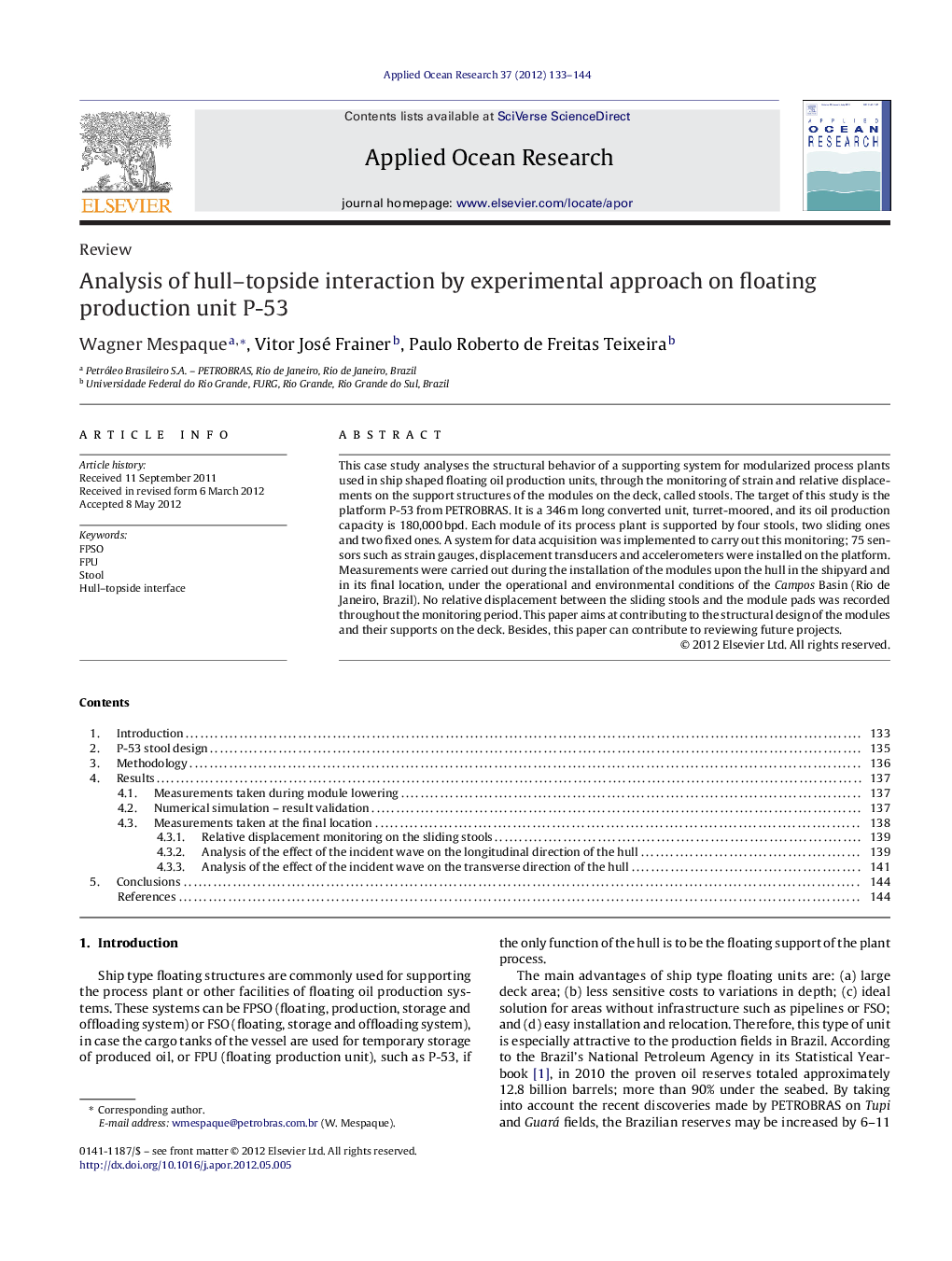| Article ID | Journal | Published Year | Pages | File Type |
|---|---|---|---|---|
| 1720248 | Applied Ocean Research | 2012 | 12 Pages |
This case study analyses the structural behavior of a supporting system for modularized process plants used in ship shaped floating oil production units, through the monitoring of strain and relative displacements on the support structures of the modules on the deck, called stools. The target of this study is the platform P-53 from PETROBRAS. It is a 346 m long converted unit, turret-moored, and its oil production capacity is 180,000 bpd. Each module of its process plant is supported by four stools, two sliding ones and two fixed ones. A system for data acquisition was implemented to carry out this monitoring; 75 sensors such as strain gauges, displacement transducers and accelerometers were installed on the platform. Measurements were carried out during the installation of the modules upon the hull in the shipyard and in its final location, under the operational and environmental conditions of the Campos Basin (Rio de Janeiro, Brazil). No relative displacement between the sliding stools and the module pads was recorded throughout the monitoring period. This paper aims at contributing to the structural design of the modules and their supports on the deck. Besides, this paper can contribute to reviewing future projects.
► This case study analyses the hull–topside interaction in an FPSO experimentally. ► Monitoring of strain and displacements on the stools and module structures was done. ► Measurements were taken during the installation of the modules and under operation. ► No relative displacement between the sliding stools and the module pads was recorded. ► No significant strain increase was observed on the structures.
